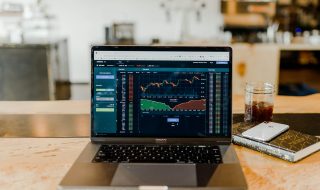
It’s really time to cut through all of those misconceptions surrounding investing in commodities. One of the biggest of all the wild claims against the commodities market is that you can’t make money when trading commodities. Well we know that isn’t true, because it’s been proven over and over again by successful traders. But these myths make new traders reluctant to enter the commodities market. Do keep in mind that myths stating you can’t make money are typically investors who were not prepared beforehand. Like any sort of trading, you want to spend adequate time studying and learning before you even consider making a move. By understanding how the market works, you can protect yourself from failure and earn nice profits.
Using Leverage Wisely
Knowing how much to leverage an account is where inexperienced commodity traders can fail. Unlike the stock market, you only need to put up from 3% to 15% of your futures contract in the futures margin. This gives commodity traders incredible leverage. This is also where it’s important to learn about holding back a little. For the best long-term success, stay on the low side. Instead of trading as many contracts as allowed by the margin requirements, trade fewer. A safe rule of thumb is to only trade one or two futures at a time. This will help you avoid failing due to getting tripped up with too much leverage.
Dumping Commodities in Your Front Yard
Have you ever heard the myth that trading in commodities can mean you might get a contract of soybeans dumped in your front yard? Taking possession of commodities isn’t something that you need to think about too much, and it shouldn’t keep you from entering the commodities market. The trades that are involved with taking delivery of contracts are commercial players. You will have ample warning to close your futures contract in time. This usually happens weeks before the end of your contract. If you forget to close it before the first notice day, your broker is sure to remind you.
Trading Commodities for the Long Haul
When entering into the commodities market, think of it as a long-term investment. It is actually a zero-sum kind of situation where every time one person loses a dollar, someone else along the line profits by a dollar or two. You might not be the one who wins every time, but if you average out your winnings over a number of years you will see your profits. For those who come to the table ill-prepared, they are most likely to lose all their money in the first few months and leave with their tail between their legs. If you enjoy the trading scene but aren’t earning nice profits, at some point you need to take a close look at your strategy. Don’t stop trading but examine where you are going wrong and determine how you can make the correct adjustments. Whether you are a novice or an experienced investor, you should always periodically stop what you’re doing to check that your trading strategy is leading you towards your goals.




